Neither will submit: Why the Russia-Ukraine war will be the cruellest since World War II
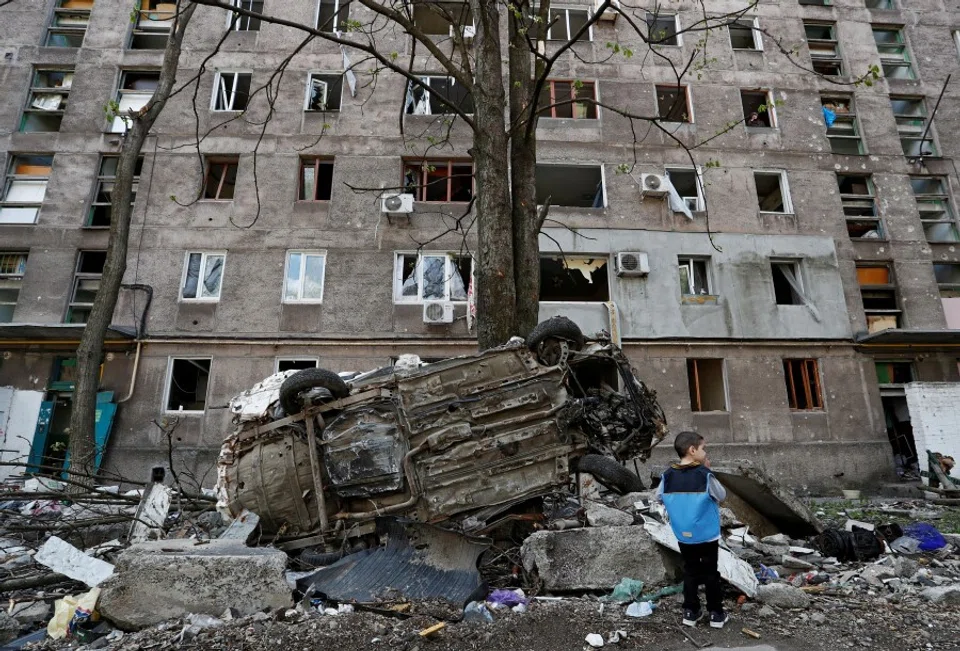
Columbia University economics professor Jeffrey D. Sachs published the article "Time to Talk Peace Terms with Russia" on Project Syndicate, stating that "Putin has more than enough firepower to destroy Ukraine and much else, and probably enough staying power to see it through". He believes that the Ukraine government should accept a negotiated peace settlement, cede Ukrainian territory to Russia and establish neutrality, in order to avoid making a huge mistake.
Sachs is known for promoting "shock therapy" to former Russian president Boris Yeltsin in the 1990s. Today, he should ask current President Vladimir Putin if he is willing to end the war by implementing "shock therapy".
Putin will surely reject the idea. On 12 April, Putin publicly acknowledged the major losses for Russian troops but still claimed that the offensive on Ukraine was going according to plan. "Our task is to fulfil and achieve all the goals set, minimising losses. And we will act rhythmically, calmly, according to the plan originally proposed by the General Staff," he said, without specifying the goals in question. But one thing is certain, since the Russia-Ukraine war began, not a single reason that Putin concocted for invading Ukraine stands up to historical and factual scrutiny.
The 'new imperial syndrome'
After over 20 years in office, Putin's imperial ambitions are abundantly clear. Jin Yan, a Chinese expert on Russia, writes, "The similarity of Putin's policies to the internal and external policies of the Tsars is no longer in doubt... all the tsars have become positive figures, and Nicholas II has been 'canonised' and is now worshipped... At present, 'imperial values' are definitely a positive national ideology in Russia. Nationalism is now the only banner under which today's Russia can rally its troops, and it is Putin's tried and true magic weapon."
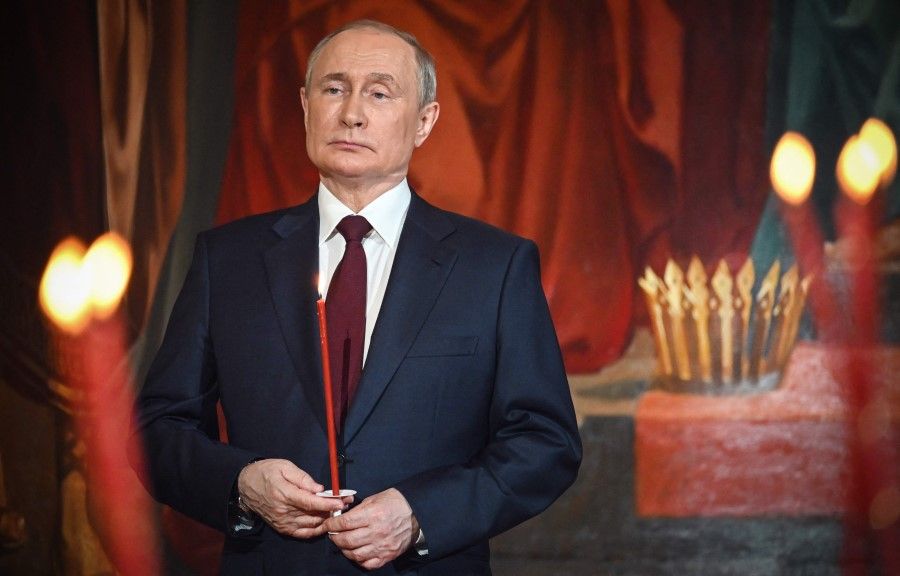
Russian academic Andrei Saveliyev has even said that "imperialism is Russia's destiny" and that "the Russian national spirit has always been grounded in imperialism". The mix of Tsarist imperialism with the sense of domination that marked the Soviet era has led to a "new imperial syndrome", and Putin's will is that of the "new imperial syndrome", as manifested by the externalisation of grievances at Russia's decline and alienation by the West after the collapse of the Soviet Union, and the reckless spread of hostility against Western countries and their culture.
Furthermore, Jin Yan also believes that Russia feels that "Western Europeans continue to view them in the same way Churchill had, 'as descendants of Genghis Khan from the wilds of Asia'".
The truth is, Putin has achieved nothing.
Putin's invasion of Georgia, Crimea and Ukraine, and Russian troops entering Kazakhstan and interfering in its domestic affairs, have all been done to regain control of the states of the former republic. Stephen Kotkin, a US expert on Soviet and Russian history, believes that the Russia-Ukraine war has to be explained in the context of the long-term actions of the Russian empire.
From the perspective of the "new imperial syndrome", Putin's objectives in invading Ukraine are clear, but has he achieved them?
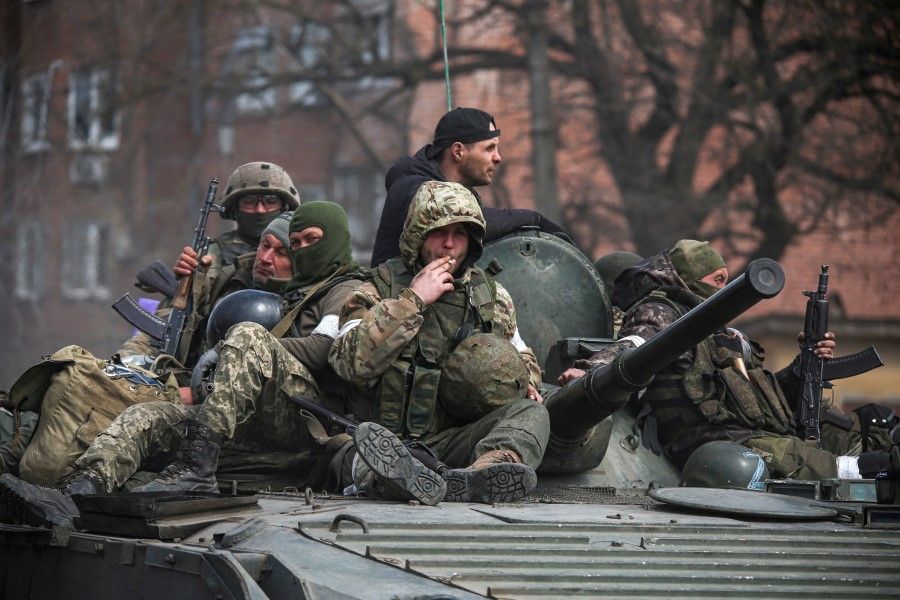
The truth is, Putin has achieved nothing. He has not taken Kyiv, Chernihiv, Kharkiv, Mykolaiv and Mariupol (N.B. As of 25 April, Mariupol is now largely under Russian control). He has not ousted Ukrainian President Volodymyr Zelenskyy or taken Ukraine - he is only in control of a minority of the population. The Russian army has suffered heavy defeats and casualties, with major damage to their equipment.
Various sources reported that at least ten Russian generals have died, accounting for over a quarter of Russian generals deployed to Ukraine. On 25 April, Ukraine reported Russian troops' casualties of 21,900 since the war started on 23 February, while UK Defence Secretary Ben Wallace said that around 15,000 Russian troops have been killed. And according to military blog Oryx, Russia has lost over 560 tanks and over 2,000 armoured vehicles.
Missile cruiser Moskva, the flagship of Russia's Black Sea Fleet, was sunk by Ukrainian missiles. The Russian military said, "While being towed... towards the destined port, the vessel lost its balance due to damage sustained in the hull as fire broke out after ammunition exploded. Given the choppy seas, the vessel sank." The "explosion" was not explained.
It is certain that the Russian navy will not get near the Ukrainian coast, which will directly affect air and fire support for Russian ground troops. Obviously, the real explanation for the "explosion" would also lead to an "explosion" among the Russian civilians and military. The Russian people can be said to trace their beginnings to the days of the Grand Principality of Moscow, and the sinking of the Moskva is a heavy blow to the "pride and prejudice" of the Russian people.
Autocratic dictators will find it difficult to hold on to their position if they fail in an external war. The fervently nationalistic Russian people will only embrace a tsar-like conqueror and will not accept a "failure".
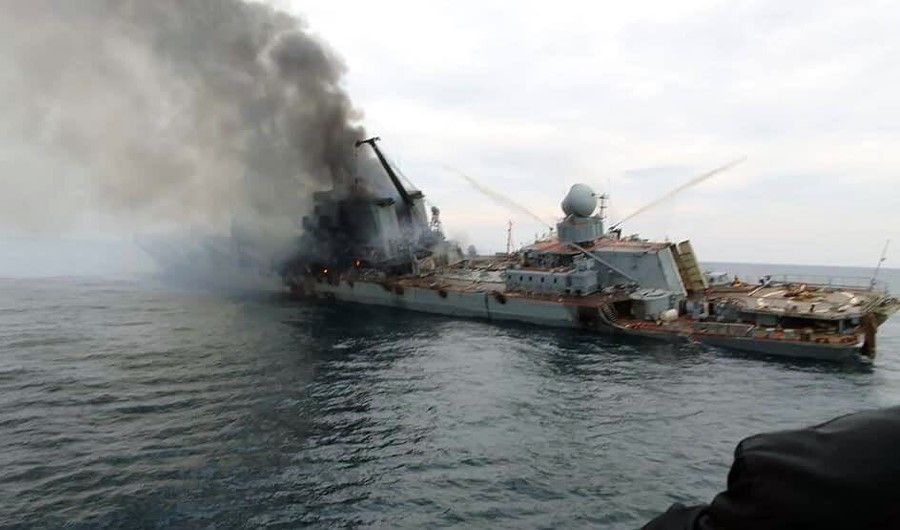
So, can Putin's imperial dreams accept the realities of the Russian army in Ukraine? Is Sachs aware of Russia's "new imperial syndrome"? Autocratic dictators will find it difficult to hold on to their position if they fail in an external war. The fervently nationalistic Russian people will only embrace a tsar-like conqueror and will not accept a "failure".
Ukrainian resilience led by leaders
Sachs' idea of "shock therapy" on the war should also be presented to Ukraine; he should ask if the Ukrainian people are willing to lay down their arms and stop resisting, and accept humiliation?
The Ukrainians would surely reject the idea. When the war began, US intelligence said that Kyiv would fall within 48 hours. But 48 hours later, Ukraine surprised the world. Ukrainians' stubborn resistance moved the European countries and became the key reason for Europe's subsequent military assistance, a stark contrast to their reaction during the fall of the Afghan government. The Ukrainian army was able to withstand the Russian army's attacks and take back the whole of the Kyiv region.
The great feat by the Ukrainians amid the war has moved its small neighbours.
No one expected the war to develop in such a manner. The Ukrainians have shown strong unity as a nation, and Zelenskyy refused to leave Kyiv, declaring that "I need ammunition, not a ride". Deputy Prime Minister Iryna Vereshchuk also stunned the world when she asked for a gun.
The great feat by the Ukrainians amid the war has moved its small neighbours. There are no refugee camps for the five million Ukrainian refugees - they have all been taken in by families in other European countries, especially Poland, which hates Russia. The Katyn massacre is a lingering shadow over the Polish people, and the Russian invasion of Ukraine would only instil fear in them - if Ukraine falls, Poland might be next, which is also why the small countries on Russia's western borders are supporting Ukraine. On 13 April, the presidents of Poland, Estonia, Lithuania and Latvia visited Kyiv - as the Chinese like to say, "a just cause attracts abundant support" (得道多助).
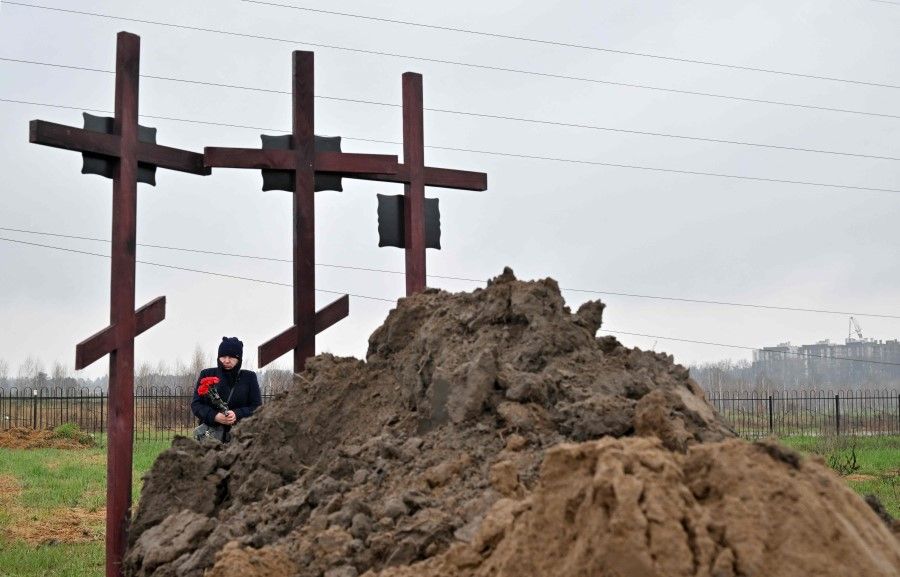
However, the Ukrainians have paid a heavy price for the Russian invasion. While the cruel atrocities of the Bucha massacre shocked the world, the Russian troops did not only kill civilians in Bucha, nor did the worst killings happen there - Bucha was just where those deeds received the most exposure.
Speaking to the media on 12 April, Donetsk governor Pavlo Kirilenko said that over 20,000 people have died in the city of Mariupol since 24 February, adding that "the Mariupol situation makes it difficult to comment on the number of casualties, the city is under siege and blockaded".
On 10 April, the media reported that Ukraine's official ombudsperson for human rights Lyudmyla Denisova has documented alleged cases of sexual violence by Russian troops in Bucha and other places, including one in which a group of women and girls were kept in a basement of a house for 25 days, nine of whom are now pregnant. In another case, a Russian soldier filmed himself sexually abusing a one-year-old baby and shared the video with his comrades.
With their homeland turned to rubble, would Ukrainians accept Putin's peace terms?
Bloody battle ahead
With their homeland turned to rubble, would Ukrainians accept Putin's peace terms? As Ukrainians see their relatives and fellow countrymen wrongfully killed by Russian gunfire, should their government still discuss peace terms with Putin? Does Sachs understand Ukrainians' brave spirit in refusing to capitulate?
Now, a bloody battle is beginning in eastern Ukraine, signalling that Putin's war is inevitably becoming a long-drawn war of attrition. Putin has appointed Russian general Aleksandr Dvornikov - known as the "butcher of Syria" - to lead the Russian troops' new offensive. The killing of civilians by the Russian forces has sparked indignance and unity among the Ukrainians, and strengthened the resolve of NATO and the European Union to come together to defend Ukraine.
US President Joe Biden has authorised the transfer of around US$750 million in additional weapons to Ukraine, while French Defence Minister Florence Parly said that France will deliver more military equipment to Ukraine on top of the 100 million euros of military aid it had already provided.
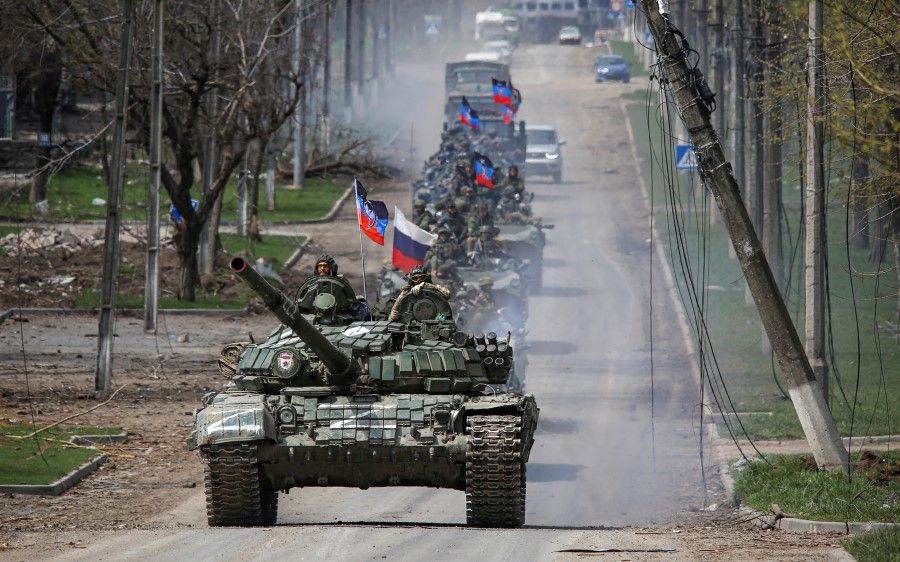
The Russian army has generally completed its redistribution of troops, and Ukraine officials predict that a battle for eastern Ukraine that would match World War II in scale and intensity cannot be avoided. Following the failure of an all-out attack, will the Russian army's strategy of a focused attack be effective?
When the suicidal tendencies of strong-willed Russians clash with the stubborn resistance of Ukrainians, it would lead to the cruellest war since World War II.
The changing war situation has led to Zelenskyy's increasingly tough stance at the negotiation table, while Putin's strategic intentions are probably to eliminate the 80,000 Ukrainian troops in eastern Ukraine, announce the disarmament of Ukraine, bring home the win, and declare a Russian victory during the Victory Day military parade on 9 May. Are Putin's plans as ridiculous as his belief that Ukrainians would welcome the Russian military?
Putin cannot afford to lose this war. His legitimacy is based on the fact that he is an imperial symbol. Putin once said, "Why do we need a world if Russia is not in it?" Does this not prove that Russia has the ability to destroy the world, and Putin has the resolve to do it? When the suicidal tendencies of strong-willed Russians clash with the stubborn resistance of Ukrainians, it would lead to the cruellest war since World War II. The whole world should pray that Putin does not press the nuclear button.
War is the sure consequence of an autocratic rule, and also a necessary weapon in ending autocratic rule. Let us wait and observe this war of the century, which will determine the 21st century civilisation and international order.
Related: Lessons from Ukraine: Russia might fall into decline by going against global sentiment | Why a truce between Moscow and Kyiv would be the best outcome for Beijing | The Russia-Ukraine war has accentuated the democratic-autocratic divide | Russia-Ukraine crisis: Can Russian aggression bring back the former glory of the Soviet Union? | How Putin became trapped by his own authoritarianism | Emperor Putin's missed opportunities and delusions
